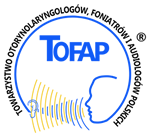On 3 June 2017 in Katowice, there was the first congress entirely dedicated to central auditory processing disorders, titled: ‘CAPD without mysteries. Diagnostics and therapy of central auditory processing disorders in children and adolescents’. The meeting was organised by Silesian Center of Hearing and Speech “Medincus” in Katowice supported by the Institute of Sensory Organs, International Center of Hearing and Speech, and the Society of Polish Otorhinolaryngologists, Phoniatrists and Audiologists.
The event had a honorary patronage of the Marshal of Silesian Voivodeship, who agreed to use the historic Hall of the Silesian Parliament located at the premises of the Silesian Voivodeship Office.
The audience of the congress primarily included speech therapists, teachers and pedagogists, but also doctors and medical technicians, willing to exchange their professional experience of either medical practice or speech and language therapy of children and adolescents with CAPD.
During the congress, the following speakers delivered their guest lectures: Ass. Prof. Piotr Henryk Skarżyński, MD, PhD, MSc, the Director of the Institute of Sensory Organs in Kajetany, and Natalia Czajka, MA, a special pedagogist and therapist, who represented the World Hearing Center in Kajetany.
The programme of the congress was specially designed to address multiple aspects of professional activities of specialists dealing with CAPD. The subject areas covered throughout the congress included: aetiology of disorders, advisability of screening, as well as professional preparation of patients to CAPD diagnostic tests, and practical explanation of the rationale behind each subtest. Some other aspects, which were equally substantial, were: the presentation of the original appliance, i.e. SPPS, and the detailed description of how speech and language therapists and pedagogists should programme auditory trainings, indispensable and pivotal to the therapy, when working with any student diagnosed with CAPD in his/her Educational Psychologist’s Report.
Participants of the congress were very intensely involved in the workshop part, seeking knowledge about the professional matters of their concern. Words of gratitude heard at the time of the congress, and seen in the questionnaires filled in by the attendees, may be the best accounts of level the scientific content delivered at the event. These very expressively show that meetings of such kind should be regular, in order to facilitate the spreading of reliable knowledge induced with CAPD diagnostic and therapeutic activities of expert practitioners.
















You must be logged in to post a comment.